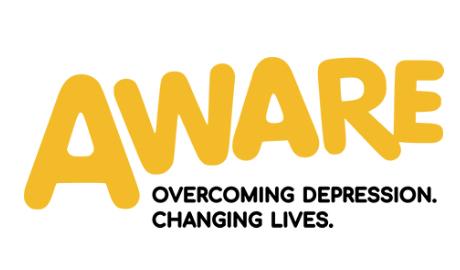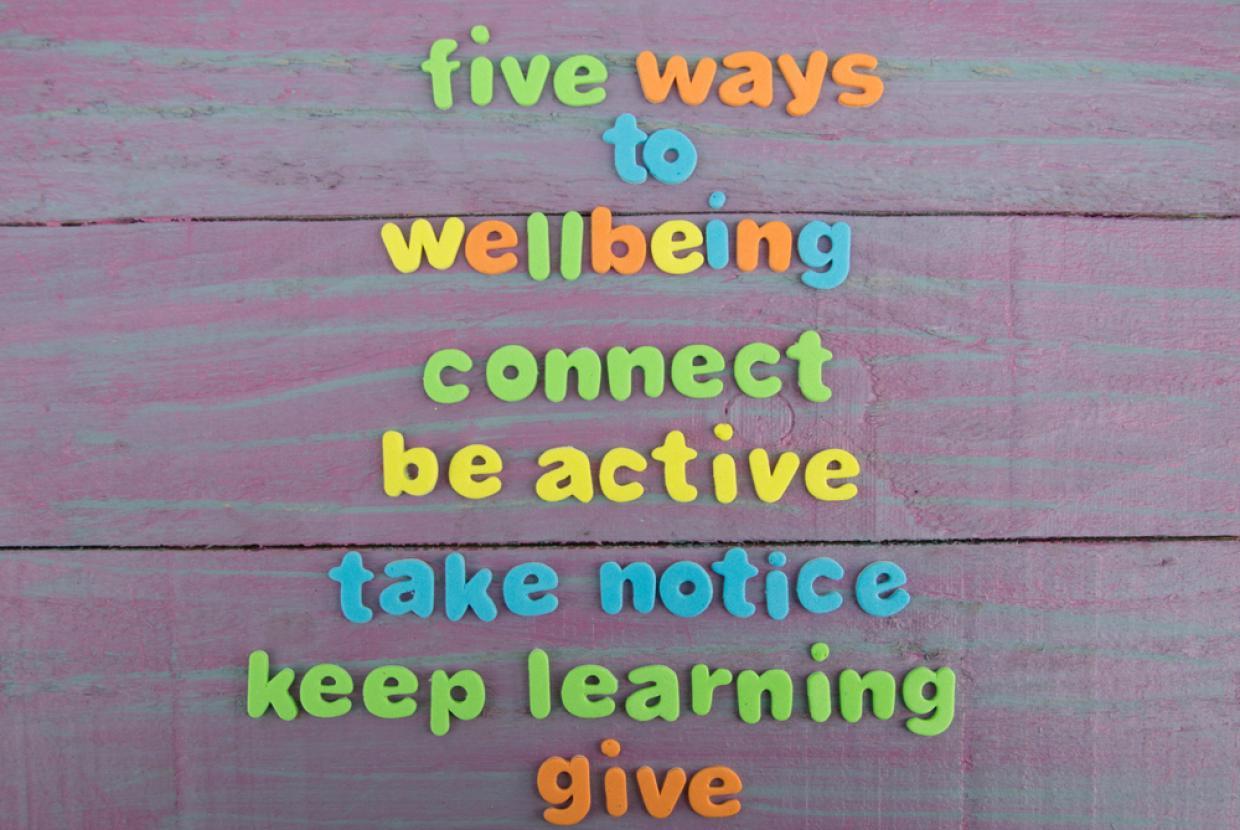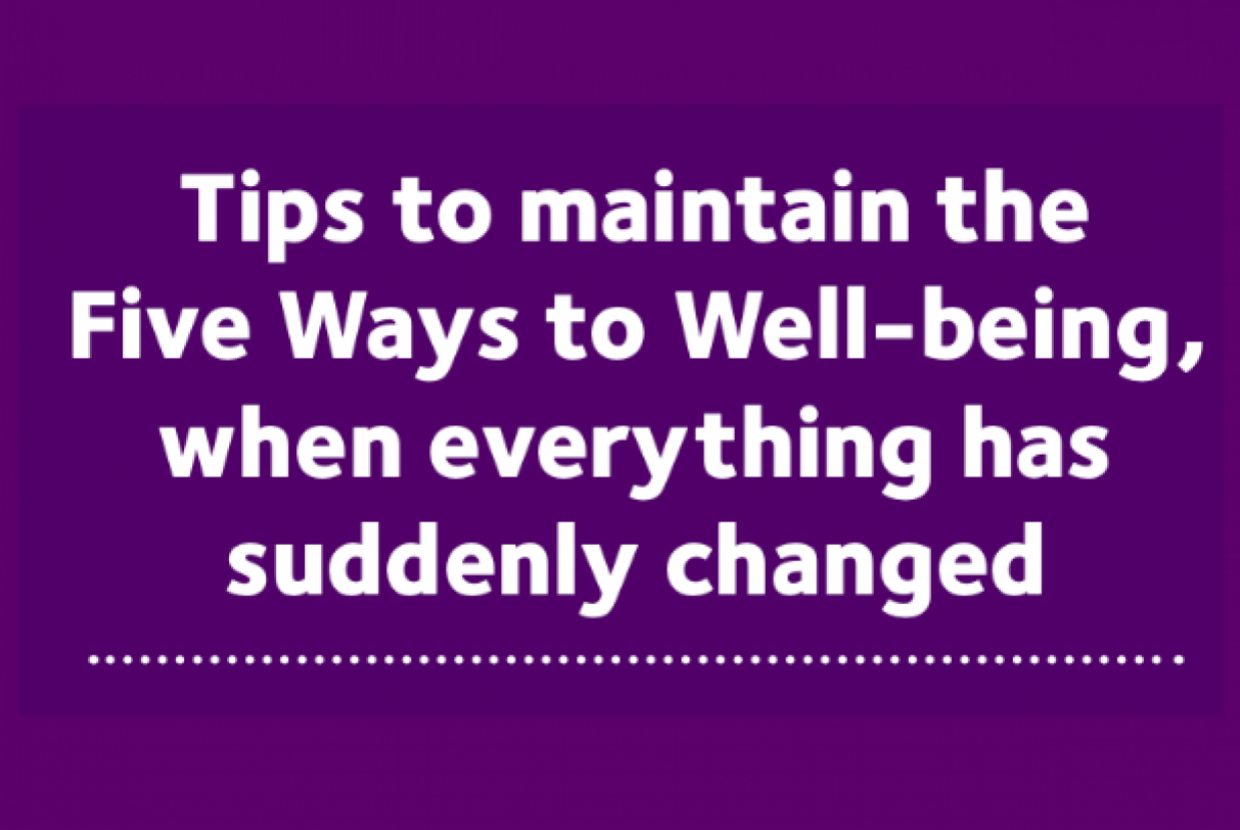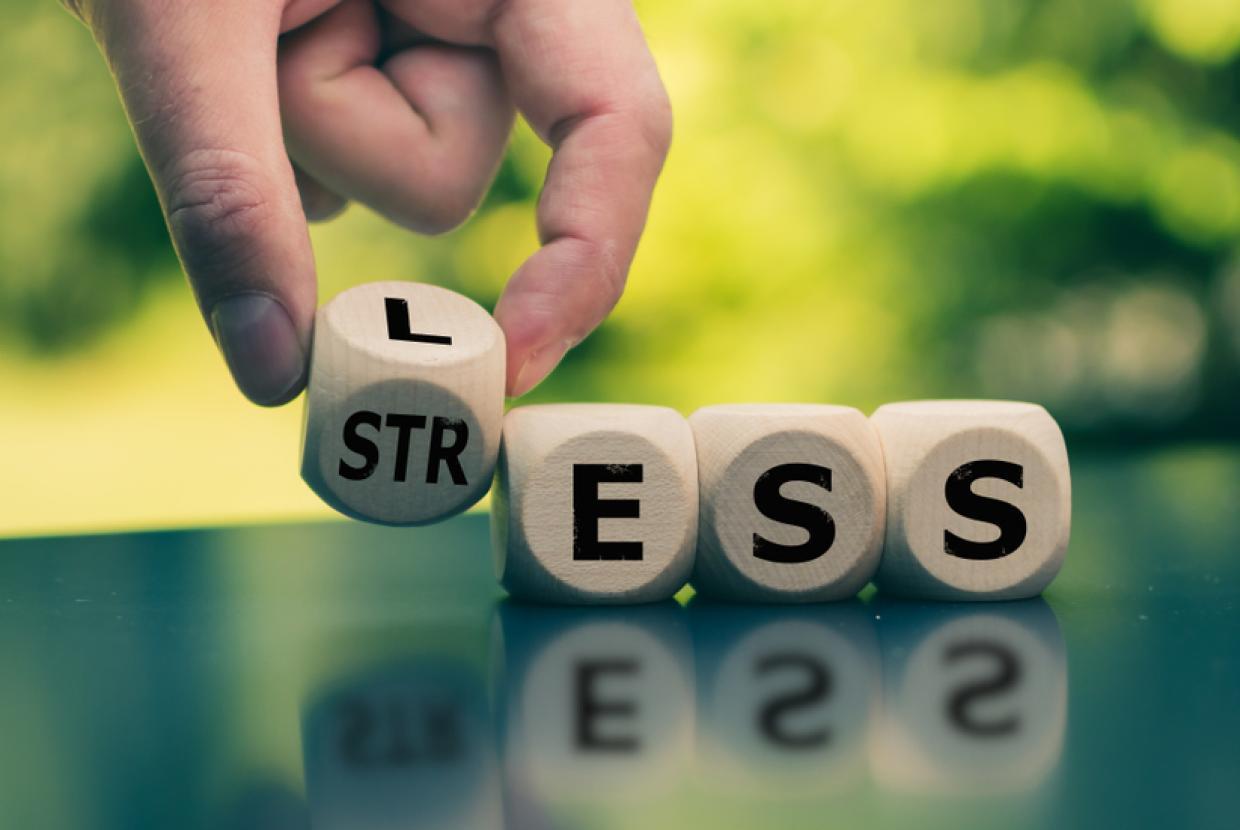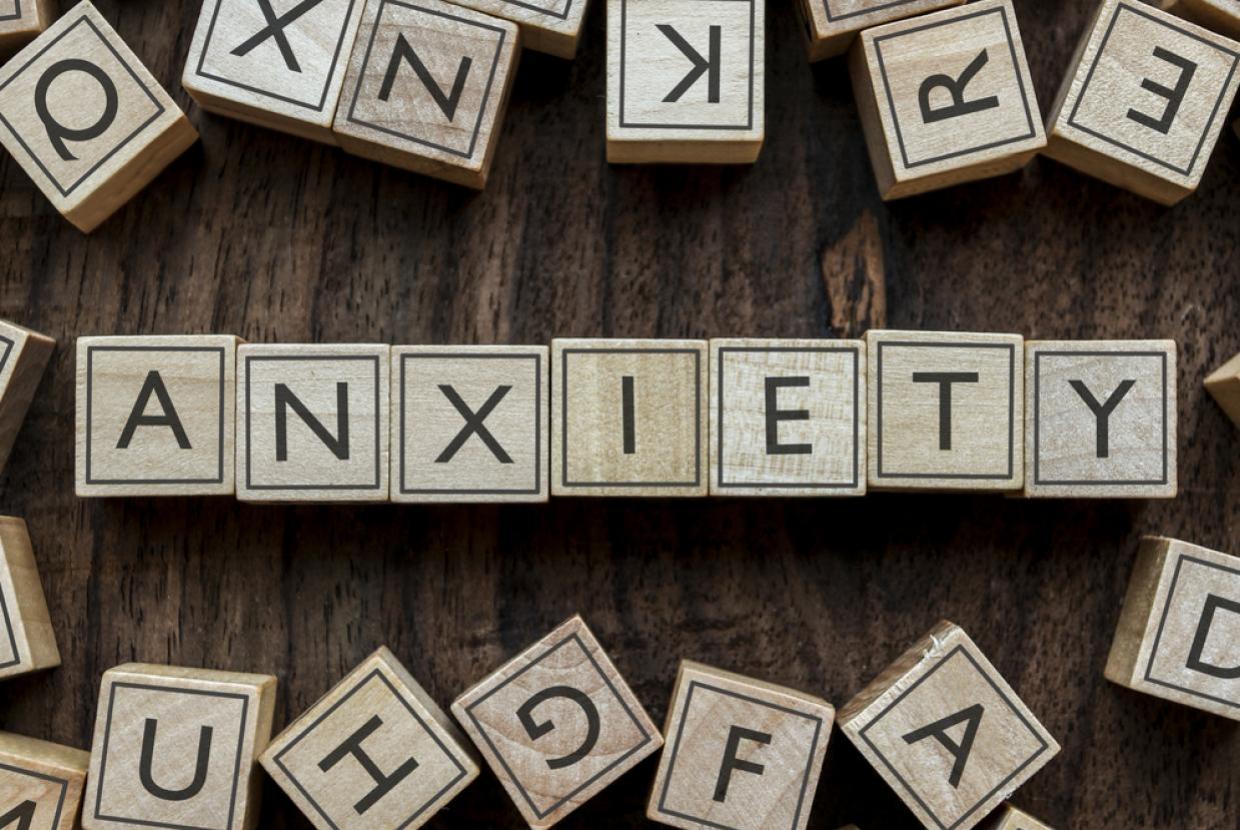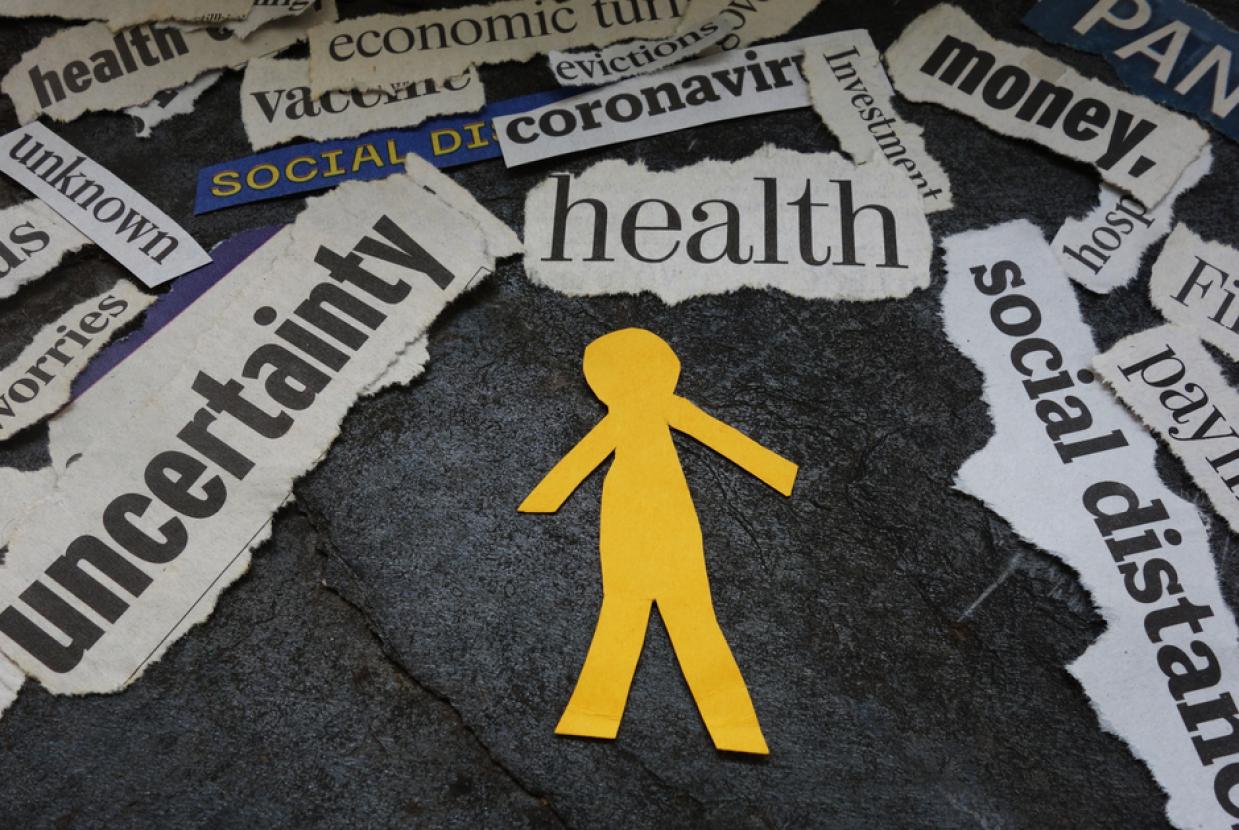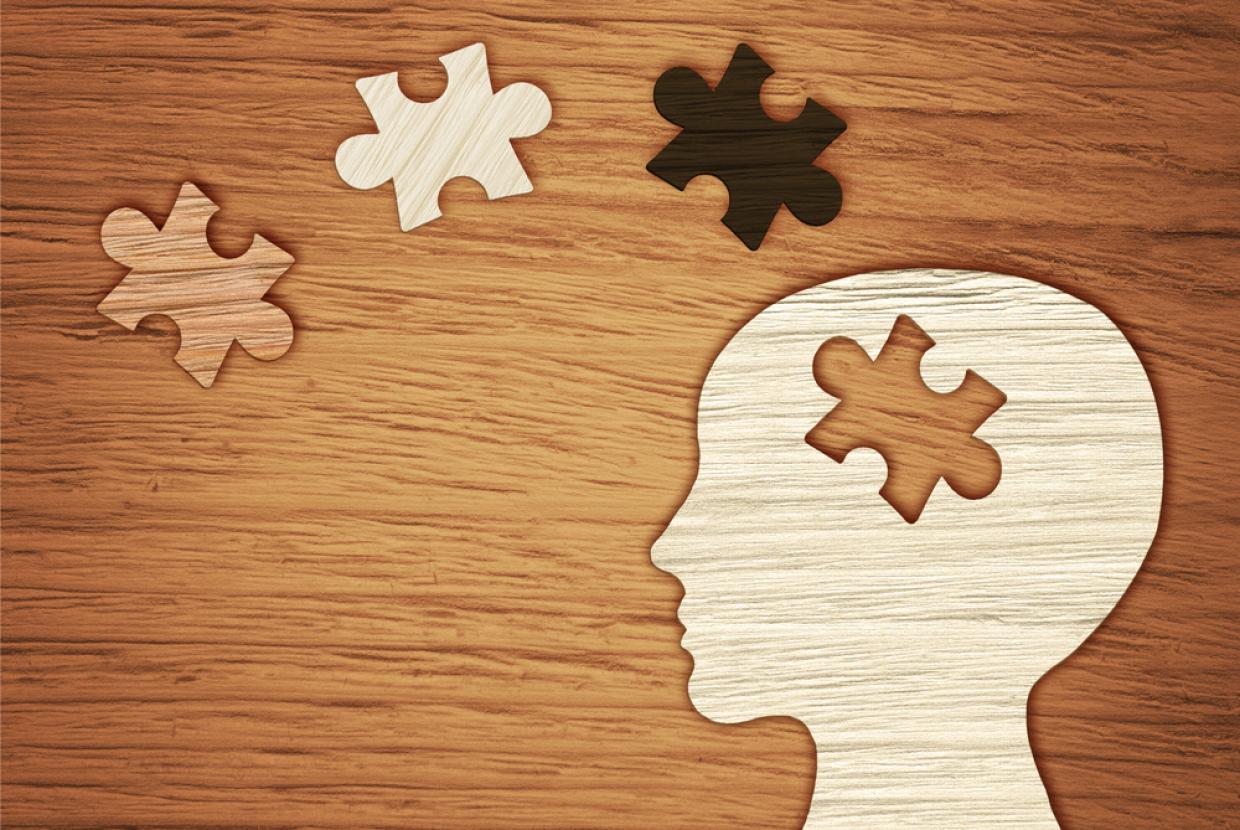Managing your mental health through change & uncertainty
COVID-19 and Mental HealthChange comes in many forms, and can affect every part of our lives. We can experience transitions in work and our relationships, as well as our personal lives. Sometimes we know a change will occur and sometimes change happens suddenly and unexpectedly. Many people spend a great deal of effort trying to avoid change, but the situation surrounding COVID-19 has meant we have had to adjust how we spend our day to day lives in order to save the lives of others.
Change affects people in different ways, some may find change is a great challenge whereas others can find it makes them feel anxious, worried or threatened.
Good or bad, change requires an adjustment of some kind. This takes energy. If the demands are too great, it can drain you and create stress. Unmanaged stress can cause symptoms of anxiety and depression including:
- An unusually sad mood that doesn’t go away
- Loss of enjoyment and interest in activities that used to be enjoyable
- Loss of confidence or poor self-esteem
- Feeling guilty when not at fault
- Difficulty concentrating and making decisions
- Physical symptoms such as headaches, tiredness, lack of energy, weight loss or gain
You may not be able to control the change itself. So, the key to coping with change is to get control of your response to it as much as possible. That’s when adjusting your attitude toward change can help.
How to manage your mental health through change & uncertainty
Check out our top tips on how to manage your mental health while going through periods of change:
Know that it will end
In this current situation, you may be beginning to wonder “Will it ever end?” It’s important to know there is light at the end of the tunnel and COVID-19 will soon become a distant memory. This may be hard to believe at the minute, but remember this current situation is temporary and will end one day.
Evaluate your level of self-control
It can become all too easy to become fixated over events which we have no power to control. Try to limit your exposure to outlets that may trigger your feelings of anxiety e.g. the news or media. Ask yourself, “What can I control in this situation?” When you look at what you can do to empower yourself, you’ll feel less stuck in difficult situations and you’ll be able to move forward in a positive way.
Practice Self-Care
In times of change, we can often forget about looking after ourselves. This can lead to feelings of stress and anxiety. Try to take some time out each day to focus on something that makes you happy. Seek comfort in exercise, mindfulness, your pets, books or journaling.
Try something new
Research shows learning new skills can help to improve your mental well-being during times of uncertainty. You may feel like you don’t have time but there are lots of ways you can bring learning into your life. Try taking up a new hobby such as cooking, journaling, running and painting are just some ideas!
Reach out
Now, more than ever it is so important to keep connected to others. If you are struggling, reach out to someone you trust and let them know how you’re feeling. They will not judge you and may be able to offer a different perspective. Knowing there is someone there who will listen will really help you process any negative thoughts and help you cope better with what you are going through.
If you feel you have no one to turn to, know there are people who are trained to listen and help.
Who to contact for mental health support
- A friend or family member
- Your GP
- Call Samaritans on 116 123
- Call Lifeline on 0800 808 8000
Small changes, Big Impact
It’s important to look after both your physical and mental health during these difficult times. Be kind to yourself, and bring some positive change into your life this week. Click here to find some useful mental health resources and videos, including Mindfulness exercises for kids.


